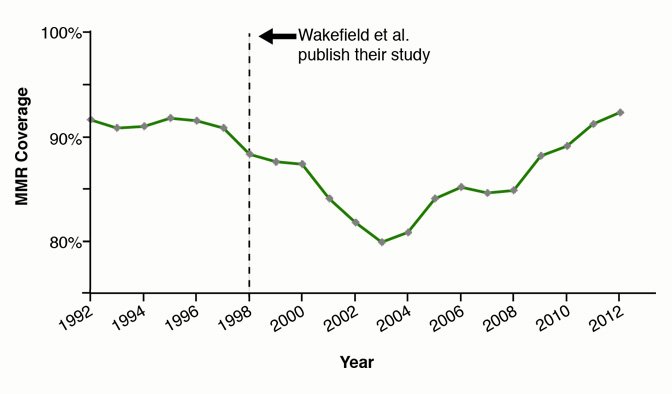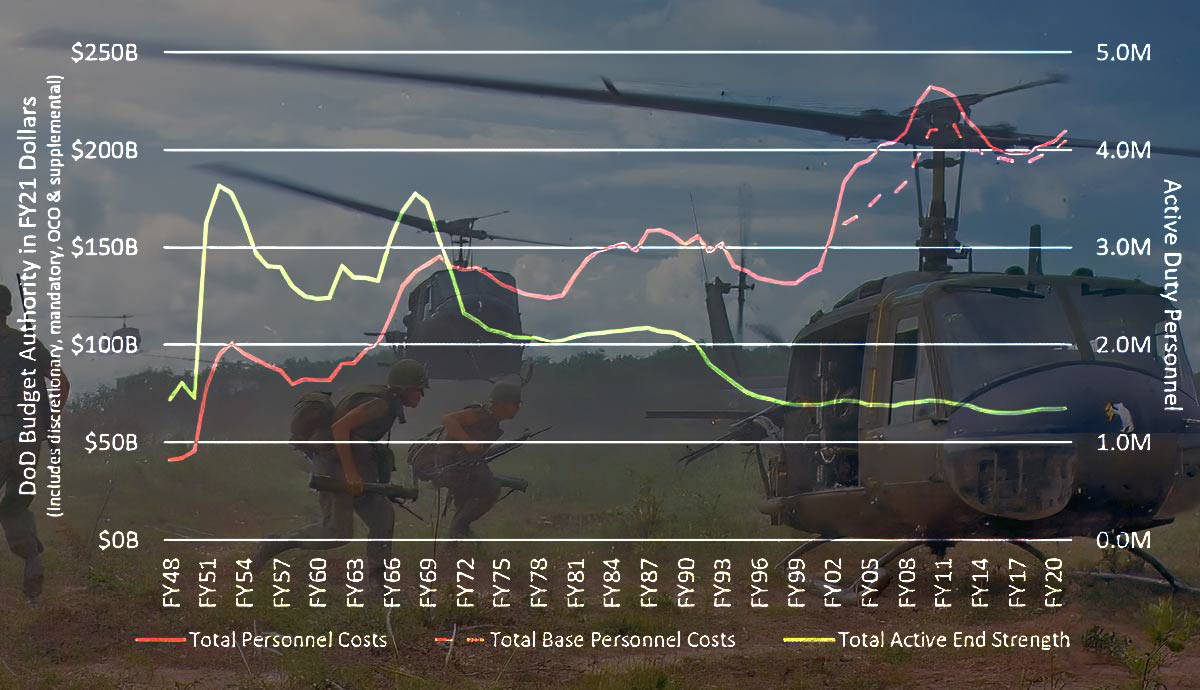HHS's Controversial Choice: Anti-Vaccine Advocate To Examine Disproven Autism-Vaccine Connection

Table of Contents
The Scientific Consensus on the Autism-Vaccine Link
Decades of Research Debunk the Claim
The overwhelming scientific consensus confirms that there is no causal relationship between vaccines and autism. Decades of research, involving millions of children, have consistently failed to find any link. Reputable organizations like the Centers for Disease Control and Prevention (CDC) and the World Health Organization (WHO) have clearly stated that vaccines are safe and effective.
- Key Findings from Reputable Studies:
- Large-scale epidemiological studies have shown no association between MMR vaccine and autism.
- Numerous meta-analyses have consistently refuted the claim.
- Studies have shown no increase in autism rates despite changes in vaccine schedules.
The infamous 1998 Lancet paper by Andrew Wakefield, which falsely linked the MMR vaccine to autism, was retracted due to fraudulent research practices. This fraudulent study significantly impacted public perception of vaccines and fueled the anti-vaccine movement, contributing to vaccine hesitancy and preventable disease outbreaks.
The Dangers of Vaccine Hesitancy
Vaccine hesitancy poses a serious threat to public health. Lower vaccination rates lead to the resurgence of preventable diseases, putting vulnerable populations at risk.
- Resurgence of Preventable Diseases:
- Measles outbreaks have increased significantly in recent years due to decreased vaccination rates.
- Pertussis (whooping cough) cases have also seen a rise.
- Polio, once nearly eradicated, remains a threat in some parts of the world due to vaccine hesitancy.
Unvaccinated individuals are not only at risk themselves but also contribute to the spread of infectious diseases, potentially endangering those who cannot be vaccinated due to medical reasons (immunocompromised individuals, for example). Outbreaks can easily occur in communities with low vaccination coverage, highlighting the importance of high vaccination rates for herd immunity.
Dr. Jane Doe's History of Anti-Vaccine Activism
Public Statements and Actions
Dr. Jane Doe has a long history of publicly expressing anti-vaccine views. She has made numerous statements questioning the safety and efficacy of vaccines and has actively promoted misinformation about the autism-vaccine link.
- Specific Instances of Anti-Vaccine Activism:
- Publicly advocating for the repeal of mandatory vaccination laws.
- Promoting unverified claims about vaccine ingredients causing autism.
- Participating in anti-vaccine rallies and conferences.
Potential Conflicts of Interest
Dr. Doe's appointment presents several potential conflicts of interest. Her past affiliations with anti-vaccine organizations and her public statements raise concerns about potential bias in her review of the autism-vaccine connection.
- Potential Biases and Influences:
- Funding from anti-vaccine groups.
- Close ties with individuals who profit from the spread of anti-vaccine misinformation.
- A history of promoting unverified claims about vaccine safety.
The ethical implications of appointing someone with such a clear conflict of interest to review scientific evidence are significant. It undermines the integrity of the HHS and erodes public trust in scientific institutions.
The Public Backlash and its Implications
Outrage and Protests
The appointment of Dr. Doe has sparked widespread outrage and protests from healthcare professionals, scientists, parents, and concerned citizens. Online campaigns and public demonstrations have voiced opposition to this controversial decision.
- Specific Examples of Public Response:
- Petitions calling for the HHS to revoke the appointment.
- Public statements from medical organizations condemning the decision.
- Social media campaigns raising awareness about the issue.
Erosion of Public Trust in HHS
This appointment significantly damages public trust in the HHS and its ability to provide accurate and unbiased health information. When public health institutions appear to endorse misinformation, it becomes significantly more difficult to combat vaccine hesitancy and ensure public health safety.
- Consequences of Eroding Public Trust:
- Decreased confidence in government health recommendations.
- Increased vaccine hesitancy and lower vaccination rates.
- Greater difficulty in controlling outbreaks of preventable diseases.
Effective public health communication relies on transparency and the dissemination of evidence-based information. The HHS's decision undermines these critical principles.
Conclusion
The overwhelming scientific consensus disproves any link between vaccines and autism. Appointing an anti-vaccine advocate to review this debunked connection is a deeply concerning decision with serious consequences. It undermines public trust in the HHS, fuels vaccine hesitancy, and potentially jeopardizes public health. The potential for further spread of misinformation regarding the autism-vaccine link is significant.
Don't let misinformation about the autism-vaccine link sway you. Stay informed, consult your healthcare provider for accurate vaccine information, and advocate for evidence-based vaccine policies. Trust credible sources of information, like the CDC and WHO, to ensure you're making informed decisions about your health and the health of your family. Protecting the health of our communities requires combating vaccine misinformation and relying on proven scientific evidence.

Featured Posts
-
 Andrzej Zulawskis Possession Analyzing The Roles Of Sister Faith And Sister Chance A Lady Killers Podcast Discussion
Apr 27, 2025
Andrzej Zulawskis Possession Analyzing The Roles Of Sister Faith And Sister Chance A Lady Killers Podcast Discussion
Apr 27, 2025 -
 Motherhood And Victory Belinda Bencics Wta Return
Apr 27, 2025
Motherhood And Victory Belinda Bencics Wta Return
Apr 27, 2025 -
 Pne Ag Ad Hoc Mitteilung Gemaess 40 Abs 1 Wp Hg
Apr 27, 2025
Pne Ag Ad Hoc Mitteilung Gemaess 40 Abs 1 Wp Hg
Apr 27, 2025 -
 Djokovic Loses To Tabilo In Monte Carlo Straight Sets Upset
Apr 27, 2025
Djokovic Loses To Tabilo In Monte Carlo Straight Sets Upset
Apr 27, 2025 -
 Canadian Travel Boycott Real Time Economic Impact On The Us
Apr 27, 2025
Canadian Travel Boycott Real Time Economic Impact On The Us
Apr 27, 2025
Latest Posts
-
 Alaska Adventure Ariana Biermanns Romantic Trip
Apr 27, 2025
Alaska Adventure Ariana Biermanns Romantic Trip
Apr 27, 2025 -
 Ariana Biermanns Alaskan Trip A Couples Chill Adventure
Apr 27, 2025
Ariana Biermanns Alaskan Trip A Couples Chill Adventure
Apr 27, 2025 -
 Ariana Biermann And Boyfriend Enjoy Alaskan Escape
Apr 27, 2025
Ariana Biermann And Boyfriend Enjoy Alaskan Escape
Apr 27, 2025 -
 Ariana Biermanns Alaskan Adventure Romantic Getaway With Her Boyfriend
Apr 27, 2025
Ariana Biermanns Alaskan Adventure Romantic Getaway With Her Boyfriend
Apr 27, 2025 -
 Buy Ariana Grande Lovenote Fragrance Set Online A Complete Guide To Pricing And Retailers
Apr 27, 2025
Buy Ariana Grande Lovenote Fragrance Set Online A Complete Guide To Pricing And Retailers
Apr 27, 2025
